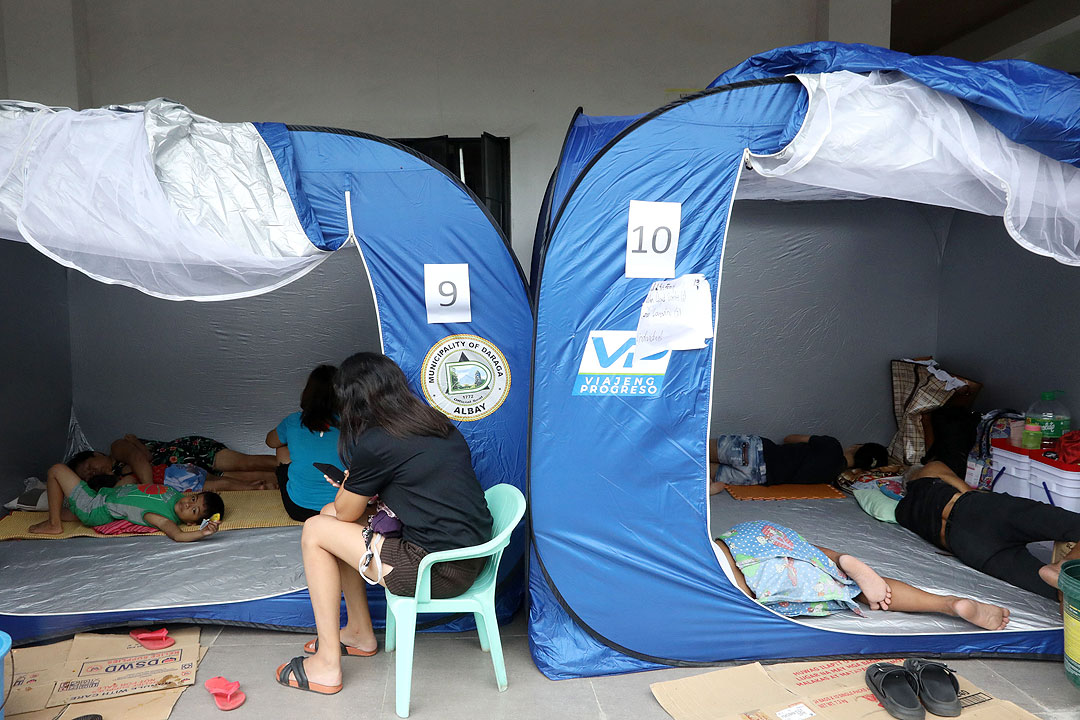
Medicine Cabinet
By Teodoro B. Padilla

Mayon Volcano started spewing lava during an eruption in Albay on July 11, forcing the evacuation of more than 15,000 residents nearby. The Philippine Institute of Volcanology and Seismology (Phivolcs) has recommended that everyone within a six-kilometer radius — the “danger zone” — of Mayon Volcano be evacuated due to the danger of rockfalls, landslides, and ballistic fragments.
Phivolcs also warned that a “hazardous eruption is possible within weeks or even days” after detecting “a relatively high level of unrest.” There are even indications that the eruptions could last for months. Under such circumstances, evacuated families may have to look for temporary shelter until it is safe to go home.
During these trying times, it is also important for everyone living in the vicinity of Mayon to stay healthy and safe. To do so, residents will have to stay clear of volcanic ash, which is composed of fine particles of fragmented volcanic rock. It is often hot very close to the volcano but is cool when it falls at greater distances.
The effects of ash on health may be divided into several categories: respiratory effects, eye symptoms, skin irritation, and indirect effects. On its respiratory effects, ash can cause nasal irritation and discharge (runny nose), throat irritation and sore throat. Those with pre-existing chest complaints may develop severe bronchitis symptoms.
Eye irritation, on the other hand, is a common health effect as pieces of grit can cause painful scratches in the front of the eye and conjunctivitis, said the International Volcanic Health Hazard Network. As much as possible, one should refrain from wearing contact lenses to prevent corneal abrasion from occurring.
If the ash is acidic, the ash can cause skin irritation and reddening of the skin, and secondary infections due to scratching may arise. Indirect health impact includes ashfall effects on road conditions, power and water supply, sanitation, risk of roof collapse, and animal health.
Here are some things that one can do to stay healthy during a volcanic eruption, according to the Centers for Disease Control and Prevention (CDC):
• If a person happens to be outdoors at the time of an eruption, seek shelter in a car or a building. If caught in a volcanic ashfall, wear a dust mask, or use a handkerchief or piece of cloth to cover the nose and mouth.
• Wear long-sleeved shirts and long pants.
• Stay indoors as volcanic ash is a health hazard, especially if one has respiratory difficulties such as asthma or bronchitis.
• When staying indoors, close all windows and doors to limit the entry of volcanic ash. Place damp towels at thresholds.
• After a light ashfall, it is advisable to filter off the ash in the drinking water supply. If a volcanic eruption is imminent, stock up on potable water good for one week.
• Turn off all fans and air conditioning systems.
• If there is need to go outside, use protective gear such as masks and goggles and keep as much of the skin covered as possible.
• If the eyes, nose, and throat become irritated from volcanic gas and fumes, move away from the area immediately. These symptoms should go away when a person is no longer in contact with the gases or fumes. If the symptoms continue, consult your doctor.
• When preparing food, make sure that all vegetables are thoroughly washed to ensure that they are ash free before they are cooked.
The CDC added that health concerns due to volcanoes include infectious diseases, respiratory illnesses, burns, injuries from falls, and even vehicular accidents. In this time of the pandemic, temporary shelters must also follow health standards to contain the spread of COVID-19 among evacuees.
There is no knowing when there will be a hazardous eruption. With this, residents in the area will have to remain vigilant and prepare to take care of their health and safety if the situation worsens. It will be important to keep updated on the situation in and around Mayon Volcano and heed local government announcements should there be a need to move to safer grounds.
Teodoro B. Padilla is the executive director of Pharmaceutical and Healthcare Association of the Philippines (PHAP). PHAP represents the biopharmaceutical medicines and vaccines industry in the country. Its members are in the forefront of research and development efforts for COVID-19 and other diseases that affect Filipinos.